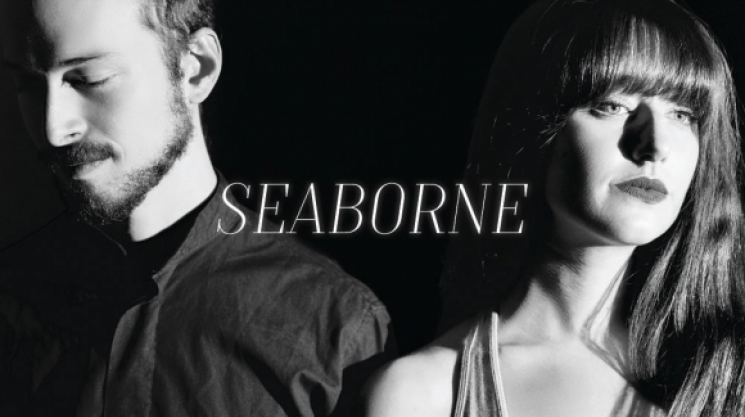
Tue, 04/18/2017 - 07:27 by karyn
In a post noir-n-b landscape, a more gentle and genuine sound has taken its place. Gone is the cynicism and cold mornings of bleak after hours venues, replaced by more depth permeating the contemporary musical panorama. Seaborne's two members, Maryse Bernard and Solomon Krause-Imlach are spearheading this bright sound in Canada with a take on modern electronic music that, although does not stray far from the more cinematic side of pop, takes adventures in production efforts, which never have been heard before. Bernard's vocal style has range that only is used sparingly and thus feels like a treat when it is stressed to its limits, while her counterpart's production never relies on plugins or clichés like so many of his contemporaries. In a point in music where there are so few rules yet ironically we are inundated with pastiches and revisionism, Seaborne do their best to find undiscovered corners in which to sit, and are so far finding success doing it. They've kindly put together a list of their esoteric influences for ION. Enjoy a stream of their latest release as well.
Cinematic pop stars
Maryse: "I've always gravitated towards artists with cinematic and dramatic qualities. Modern singers like Lana Del Rey who've mythologized themselves and created a kind of enigma. I like musicians whose distinct personas become integral to their aesthetic, like Lady Gaga or Childish Gambino, who've imagined these wild characters and backstories. It's fascinating to me; I get kind of obsessed with exploring their crafted worlds. The dramatic flair and intrigue of classic French singers, like Edith Piaf, also inspire my personal artistic portrayal."
Exploring styles
Solomon: "My major influences in the electronic music world are the people innovating, pushing forward, and expanding their repertoire of styles. The L.A.-based label/collective Soulection, whose initial compilations drew mostly on laid-back hip-hop, has forayed into the wide open spaces that electronic music offers and inspired me to experiment since their first release. A couple years later, I got really into Soulection affiliate Mr. Carmack, who in my eyes is one of the best at adventuring into different subgenres while infusing them with his own signature sound. The ability to create immersive soundscapes in a variety of styles has always been my goal. I'd get pretty claustrophobic sticking to one corner of electronic music, so that commitment to trying new things is a driving force for me."
R&B and soul music
Maryse: "R&B and soul have been constants for me as long as I can remember listening to music. I was introduced to Etta James at a young age and have been hooked since. In the early 2000s, every day after school I would play my Destiny's Child or Alicia Keys CDs on repeat until I'd memorized every lyric. R&B is still the primary genre I listen to and sing, now with its contemporary blend of heavier hip-hop and electronic. I was pretty heavily into Nao and dvsn while writing the songs for LUSTRE, so those vibes may be reflected in parts of the EP."
Weird sounds
Solomon: "Something that runs throughout my production is the use of unconventional sounds and samples, especially for percussion. I love scrolling through huge libraries of samples and foley sounds to find something weird that I can then manipulate and make my own. Everyone loves an 808, but I get a lot of pleasure out of using "Impact Coconut Drop 01.wav" to make a snare."
World music
Solomon: "My mom played lots of world music at home (from Celtic to Middle Eastern to Latin), my dad listened to all kinds of weird stuff on the radio, and I went to an international school that focused on cultural diversity and so exposed me to a lot of traditional music as well. I think it's seeped into our musical sensibilities."
Maryse: "My dad hosted a world music radio show, so he would constantly bring home new records. There was a lot of Brazilian, Cuban, and African music playing around the house–artists like Buena Vista Social Club, Seu Jorge, Cesária Évora. That early environment of musical exploration is probably one of the reasons we like to experiment with rhythm and percussion...and why I had a big reggaeton phase."





Add comment